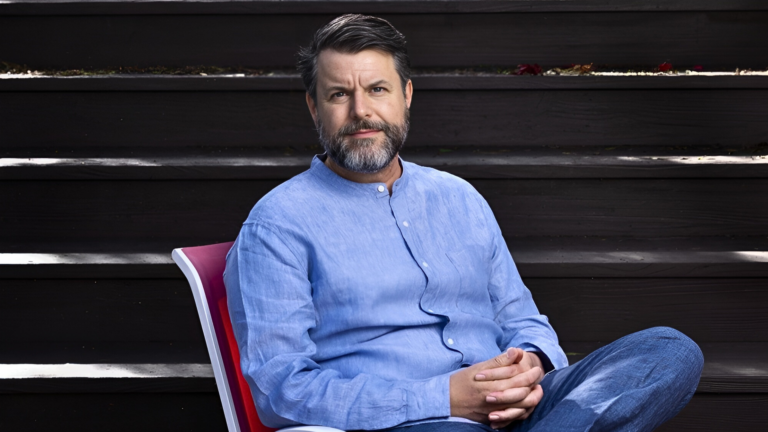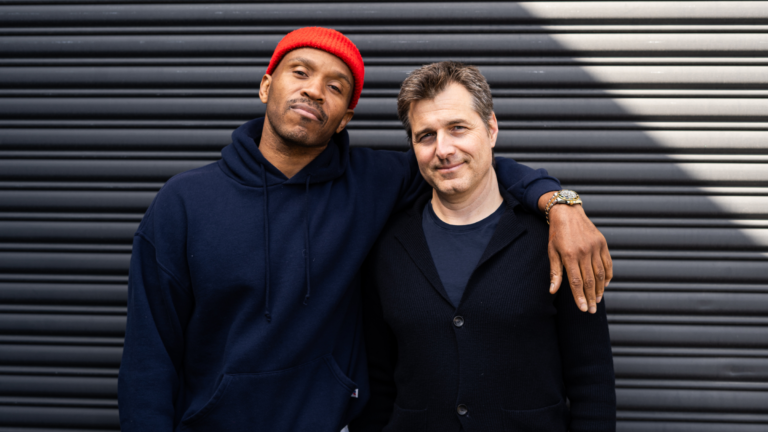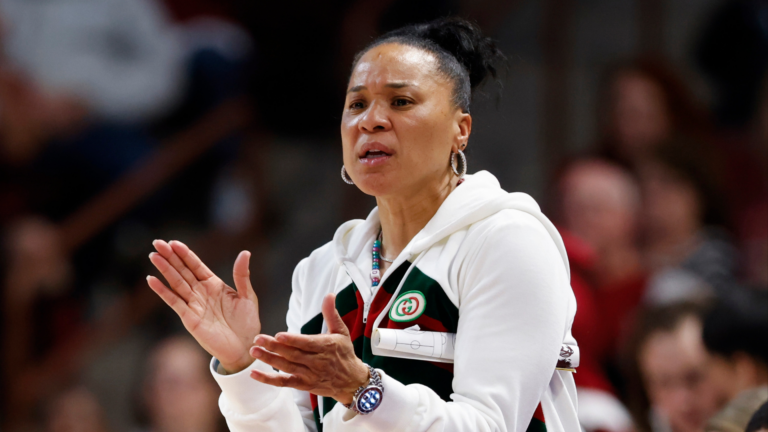This week’s conversation is with Chris Bosh, an 11-time NBA All-Star, 2-time Champion and the NBA’s first Global Ambassador of Basketball.
Chris fell in love with basketball at an early age and earned the prestigious “Mr. Basketball” title while still at Lincoln High School in Dallas, Texas.
A McDonald’s All-American, Chris was selected fourth overall by the Toronto Raptors after one year attending Georgia Tech.
Chris would eventually leave the Raptors to team up Lebron James and Dwyane Wade with the Miami Heat, where he would win two NBA championships, yet had his playing days cut short during his prime by a freak medical condition.
His extraordinary career ended not at a time of his choosing but “in a doctor’s office in the middle of the afternoon.”
Chris was forced to reckon with how to find meaning to carry forward, and that really sets the tone for this conversation.
We discuss what led to his success during his time in the league and how he found meaning in his life post-basketball – something I know many other athletes can relate to.
“My best experiences have come from my relationships with friends, with my family, with my wife.”
In This Episode:
How does he think about the mental side of the game?
It’s definitely a part of the job, especially if you want to be successful, in my opinion. I guess it’s something that I really can’t describe. I guess from an early age, I was just always just kind of aware of certain particular things, aware of how I felt about things. I didn’t talk much as a kid. I was very reserved, very quiet. But where I’m from, you have to have a very vivid imagination to kind of stay stimulated. I guess that’s where it came from. Just a lot of time, just in quiet solitude, quiet time with family, riding in cars. Just hours and hours and hours of sitting. I think that’s where it comes from.
What did he love about his childhood experience?
Just being a kid, being a child, having the ability to do that. It never got too serious, too quick for me. I always loved basketball. It was always a part of what I wanted to do. But I more subdued on the playground, did it with my friends. It wasn’t about the leagues right away. Even though I did play early, it was only for about 10 weeks out of the year. So other than that, I’m going to practice or playing with my friends. When I look back on it, that’s what I love the most about my childhood, just being allotted the time to process these things, as a child and have on those experiences as a kid. Like I said before, riding your bike, getting chased by dogs, going to the recreation center, having great time at summer camp. Those were major parts in what I experienced.
How his family upbringing experiences his leadership style as an adult
Anytime we were on the road, let’s go out to eat together. Let’s have this meal as a team. There’s something about sitting down and having those conversations around the dinner table, the breakfast table, the lunch table, whatever it is with your team and I found that to be something where you could really, really build connections. And those connections ended up helping us be successful as we could be on the court because you have to know who the person is that you’re playing with, or that you’re working with. And I found that those dinners sitting down. It’s a way to forget about everything else. Sure, there’s enough time in the day to get the troubles through or whatever, but right now, hey, we’re having a good meal and just joke and laugh, and maybe watching the game. I even passed down to our kids. I have five children. So my wife and I, we will go out we’ll take them and say, “Hey, were sitting at the table.” And we’re going to sit together whether that’s here from barbecuing on the weekend or if we say, “Hey, let’s go out to eat this weekend.” We’ll sit down as a family, and I want them to get used to that and have the manners and be able to present yourself at a function. Those are very important skills to have.
The delicate balance between supporting and challenging teammates
The main thing about being in the locker room for so many years is that we’re constantly nitpicking and picking things apart and pointing out our mistakes and saying, “We got to get better until you win a championship, if you’re lucky enough.” There is a delicacy to talking to people, to talking to your teammates, to demanding. Some people you have to push. Some people you have to pull. Motivation, you might have to light a fire. Some, you might have to bring it down a notch. You can only know that through that bonding. I say, overall, it’s just something you continue to have to fill out. In the mistakes you can’t say, “Aha. See, that’s why…” Man, that’s the quickest way to lose somebody. You have to encourage people. You have to be together. It’s always going to be, hopefully another possession, another game or another practicing. Also, even if those things do happen, you address it the next time. You address the next time until the mistake is corrected.
What was the mindset of the Big 3 in Miami like?
We all had minds that can transcend a game plan. You just want to have a solid foundation, a system is a team. It’s kind of a thing you have to earn their respect every day. And at the same time, you have to be aware that the players are the one out there on the court. So it will be constant conversations about what they see, how they feel. I would tell them what I see. And on top of everything, I would challenge them. That’s the biggest thing. Both of those guys in their primes could roll out of bed and get 35 to 50 points tonight. So it’s really not about talent. It’s about you lighting the fire, recognizing if I need this person to do this or that, and having that open monologue conversation. Nothing too outside the norms of what makes great coaches great.
What he looks back mostly fondly on when thinking about his career
I’ve been so lucky to reach the highest peak of basketball, a number of times. At the end of the day, nothing is more important in your relationships. You have seen the classic story of the athletes with nobody. He or she was egotistically driven. Now, they have nothing and ga, ga, ga, ga. Horrific injury. Something took them out. It’s like the classic movie line. My best experiences have come from our relationships with friends, with my family, with my wife. Those are the things that I can look back and say, “Man, that was a good time.” Because you can play in an All-Star game or you can even play in the NBA championship, in the finals. What I remember most now that I’m not playing anymore, and you hear most of the athletes say that is the bus ride, is the camaraderie, the locker room.
How his leadership style evolved over the years
I’m so appreciative for those lessons because they were necessary. There is a vocal aspect to being a leader. You don’t have to you stand up on a chair and give them a win-win for the giver every game. But you do want the ears when you speak. When you have something to say, you want to be powerful and you want it to be heard. I always took that with me. So I tried mix both. But as I became older, as my confidence settled, I began to be more outgoing, more boisterous, whether I was in the locker room or socially. And just having fun with my immediate circle and the people that I’m around. Now, I wouldn’t get on the bullhorns and say, “Yo, Toronto. What’s happening?” I wouldn’t go that far. But if you were at dinner with me, we would have a good time.
What were the emotions having to retire early (at 31)
Extremely hard. I play my last game when I was 31 years old. I’m 37 now. I easily thought I would be playing now and maybe in the twilight phase right now, maybe one more year. But that’s how I saw it going. At the time, it was extremely difficult to handle. But I found those things like writing, music to put my time into, spending time with my family, getting into that, being a father. It’s a lot of things you have to do getting into that stuff. Those are the things that help me exercise those demons of not playing anymore because I didn’t know how much time I was given to the game. My life was so regimented. We do this. We do this. We’re playing on Christmas. Hopefully, the playoffs. Everything revolved around that world. And sure, I’ve been lucky to have a couple of other things that I’m interested in, but that doesn’t mean that you do them at a professional level, right? Or you open up some sort of business around that idea that doesn’t necessarily happen like that. It was extremely difficult. I want people to understand that. I know I’m all cool now and very Zen now, but it was very, very tough trying times, but leaning on those things, keeping that big picture, focus intact. That was the ultimate challenge to be honest with you.
Does he journal or meditate?
That’s how the book happened. It started for me journaling every day. First it was hand written. I’ve kind of pretty much moved into a point, I love drawing too. I’ve reconnected immensely back with that since I haven’t played anymore. So I have a sketchbook/journal/calendar thing. Just something that I can write on with no lines. That’s pretty much like a goodwill house for me. I keep that everywhere. I do meditate. I know that’s like a huge term and it varies from person to person. I always start off my mornings, the first 30 minutes. Give me a coffee. I sit down on my seat outside, probably right outside my office or my garage and I just sit there and just think about my day, what I’m going to do today, my schedule, what I’m going to go over, and just have them on a piece. I try to get to it again in the evening, but I do try to take that moment of just not doing anything. A lot of people think you have to sit there. It’s like, “Damn, which finger do I hit?” I’m not too much like that. I’ll be the old guy in the rocking chair hopefully on the porch, just sitting there. You know what I mean? And that’ll be my meditation.
Embrace your creativity
One of the things that I would entice people to do is not study too much. There is the part of it, but get out there and do it. Let’s act. That’s kind of the mode that I’m in right now. When you learn that knowledge, apply it, use it. If you’re a beginner and you’re a painter, or sculptor, make it sure. You’re not going to be Picasso or Da Vinci right away, but if you stay at it, stay with it, you’ll be the best form of yourself. And nothing comes without going to that beginner phase of learning to embrace it. I’ve learned to accept it. The frustration. You know what I mean? It’s like, “Ugh, man.” I might be running, but it’s so interesting. I will ask people. They might see a drawing or something I do and say, “Oh, wow. You can draw?” I tell people, I encourage people, “You can draw too.” The first thing everybody says is, “No, I cannot.” I say, “Okay. don’t say that. Draw a circle. Okay, you can draw.” Draw a house with you in front of it. What happen to the stick figures with the houseman? We all start from somewhere. I want to entice people to put it into action. Let’s get started. Do it and refine that work as you go along and always believe, hold that visualization in your head of what you want, what you want to create and the person that you want to be. You keep working toward that every day, fall in love with the work you’re doing. I think that could help tremendously with people. And I’m talking to myself when I’m telling you guys this. All right? I always say things that I want to embody as well. Happy creating.


